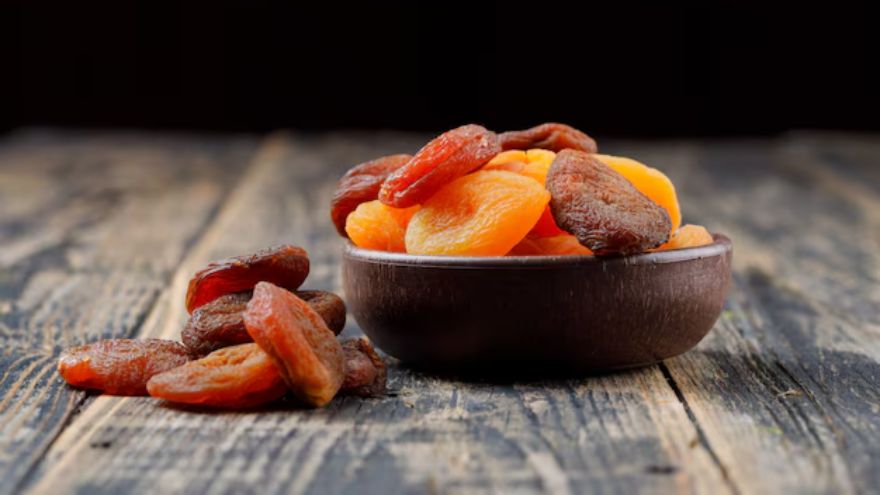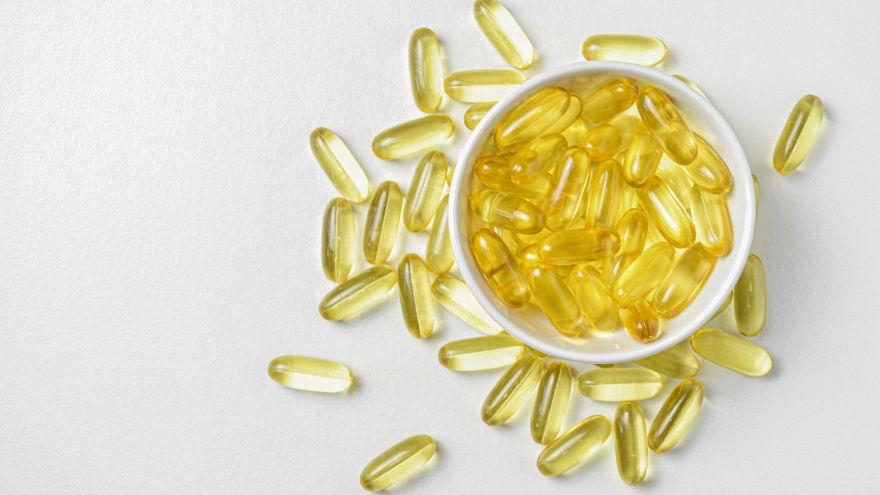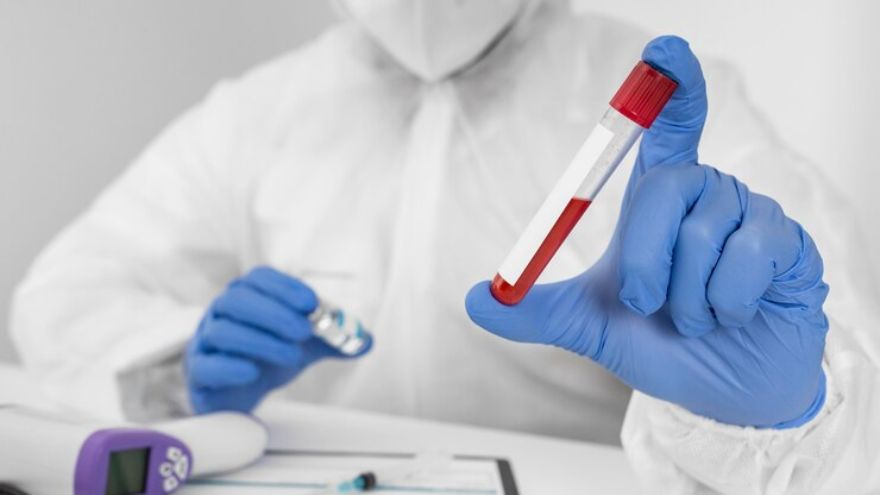
Dried apricots are more than just a tasty treat; they are a powerhouse of nutrition, combining the natural sweetness of apricots with the convenience of a long-lasting, portable snack. With their chewy texture and concentrated flavor, dried apricots have become a popular choice for those looking to enjoy the benefits of fruit on the go. From dry apricot benefits to the best ways to eat them, this blog covers everything you need to know about dried apricots, including their benefits, uses, potential side effects, and how they fit into specific diets like those for pregnancy or diabetes.
What Are Dried Apricots?
Dried apricots are apricots that have been dehydrated, typically by sun-drying or using a drying machine, to remove most of their water content. The drying process not only concentrates the fruit's natural sugars, making dried apricots much sweeter than their fresh counterparts, but also preserves the fruit for a much longer time. This method of preservation has been used for centuries, allowing people to enjoy apricots all year round, even when they’re not in season.
The dehydration process also reduces the apricot’s size significantly. Dried apricots are usually a rich orange or deep brown color depending on whether they have been treated with sulfur dioxide to maintain their bright hue or left untreated.
Nutritional Benefits of Dried Apricots
1. Rich in Vitamins and Minerals
Dried apricots are a great source of essential vitamins and minerals. They are particularly rich in Vitamin A, which is crucial for maintaining healthy vision, skin, and immune function. Vitamin A in dried apricots primarily comes in the form of beta-carotene, an antioxidant that also plays a role in reducing the risk of chronic diseases.
In addition to Vitamin A, dried apricots are high in potassium, an important mineral that helps regulate blood pressure, balance fluids, and maintain healthy nerve and muscle function. They also contain notable amounts of iron, making them a beneficial snack for individuals looking to increase their iron intake, particularly vegetarians and vegans.
2. High in Fiber
One of the most significant health benefits of dried apricots is their fiber content. Dietary fiber is essential for digestive health, as it aids in promoting regular bowel movements and preventing constipation. Soluble fiber, which is found in high amounts in dried apricots, also helps in lowering cholesterol levels and stabilizing blood sugar levels. This makes dried apricots a great snack for people looking to improve their digestive health or manage their cholesterol.
3. Packed with Antioxidants
Dried apricots are rich in antioxidants like flavonoids and polyphenols, which help combat oxidative stress in the body. Oxidative stress can lead to inflammation and has been linked to various chronic diseases, including heart disease and cancer. Consuming antioxidant-rich foods like dried apricots can help protect your cells from damage and support overall health.
4. Low Glycemic Index
Despite being naturally sweet, dried apricots have a low glycemic index (GI), which means they release sugar into the bloodstream more slowly compared to other sugary snacks. This makes them a better option for people looking to maintain steady blood sugar levels, such as individuals with diabetes or those trying to avoid energy crashes after eating.
How to Eat Apricot Dry Fruit?
Dried apricots can be enjoyed in various ways, both on their own and as part of different recipes. Here are some ideas on how to incorporate them into your meals:
1. As a Snack: Dried apricots are perfect for snacking on the go. Pair them with nuts or seeds for a balanced snack that includes protein and healthy fats.
2. In Baking: Dried apricots add natural sweetness and texture to baked goods like cookies, muffins, and bread. They work especially well in fruit and nut loaves or granola bars.
3. In Salads: Slice dried apricots and add them to salads for a sweet contrast to savory ingredients. They complement ingredients like goat cheese, nuts, and leafy greens.
4. In Tagines and Curries: Dried apricots are often used in Middle Eastern and North African cuisine, where they add a sweet note to savory dishes like lamb tagines and vegetable stews.
5. In Breakfast Dishes: Sprinkle dried apricots over oatmeal, yogurt, or cereal for a flavorful and nutritious breakfast.
6. As a Sweetener in Smoothies: You can blend dried apricots into smoothies to naturally sweeten the drink without adding sugar.
Dried Apricots: Benefits and Side Effects
While the benefits of apricot dried fruit are plentiful, it’s important to consume them in limited amount. Let’s look at both the benefits and potential side effects:
Benefits
- Supports Digestive Health: The high fiber content helps in maintaining regular bowel movements and improving gut health.
- Boosts Immunity: Vitamin A and antioxidants in dried apricots support the immune system, keeping infections at bay.
- Helps in Iron Absorption: Dried apricots contain non-heme iron, which is especially beneficial for those who follow a plant-based diet. Pairing dried apricots with vitamin C-rich foods enhances iron absorption.
Side Effects
While dried apricots are generally safe to consume, eating too many can lead to certain dried apricots side effects, such as:
- Digestive Discomfort: Due to their high fiber content, consuming large amounts of dried apricots may lead to gas, bloating, or diarrhea.
- Sulfite Sensitivity: Some dried apricots are treated with sulfur dioxide to preserve their bright color. This can cause allergic reactions in individuals sensitive to sulfites, leading to symptoms like headaches or respiratory issues.
- High Caloric Content: Since dried apricots are more concentrated than fresh ones, they contain more calories. Moderation is key, especially for those managing their weight.
Conclusion
Dried apricots are a versatile, nutrient-dense snack that offers a wide range of health benefits. Whether you enjoy them on their own or incorporate them into your favorite dishes, they’re a convenient way to boost your intake of essential vitamins, minerals, and fiber. Just remember to enjoy them in moderation to reap the most benefits.
FAQs About Dried Apricots
1. Are dried apricots as healthy as fresh apricots?
Dried apricots retain most of the nutrients found in fresh apricots, though they are more concentrated due to the removal of water. However, some vitamin C may be lost during the drying process. Despite this, dried apricots are still an excellent source of vitamins, minerals, and fiber. It’s important to remember that dried apricots are more calorie-dense, so portion control is key.
2. Do dried apricots have added sugar?
Most dried apricots do not contain added sugar, as the dehydration process concentrates the fruit’s natural sugars, making them sweet enough on their own. However, some brands may add sugar to enhance flavor, so it’s always a good idea to check the label if you are concerned about added sugars.
3. Are dried apricots good for digestion?
Yes, dried apricots are high in fiber, which promotes healthy digestion. The fiber content helps to keep your digestive system running smoothly by preventing constipation and aiding in regular bowel movements. However, eating too many dried apricots can have a laxative effect due to their fiber content, so moderation is advised.
4. Do dried apricots contain sulfites?
Some dried apricots are treated with sulfur dioxide to preserve their bright orange color. Sulfites are generally safe for most people but can cause allergic reactions in sensitive individuals, particularly those with asthma. If you’re looking to avoid sulfites, go for organic or naturally dried apricots, which tend to be darker in color.
5. How long do dried apricots last?
When stored in an airtight container in a cool, dry place, dried apricots can last for up to six months. For longer storage, you can refrigerate or freeze them, extending their shelf life up to a year or more.
6. How Many Dried Apricots Should I Eat a Day?
A recommended portion is about 4-6 dried apricots per day. This is equivalent to a handful, providing around 70-80 calories. Keep in mind that it’s easy to overeat dried apricots due to their concentrated sweetness, so portion control is important.
7. Is Dried Apricot Good for Pregnancy?
Yes, dried apricots can be a healthy snack during pregnancy. They provide essential nutrients like iron, potassium, and fiber, which are crucial for both the mother and the baby. The iron content helps prevent anemia, a common issue during pregnancy, while the fiber aids in digestion and helps prevent constipation, another frequent concern for pregnant women.



